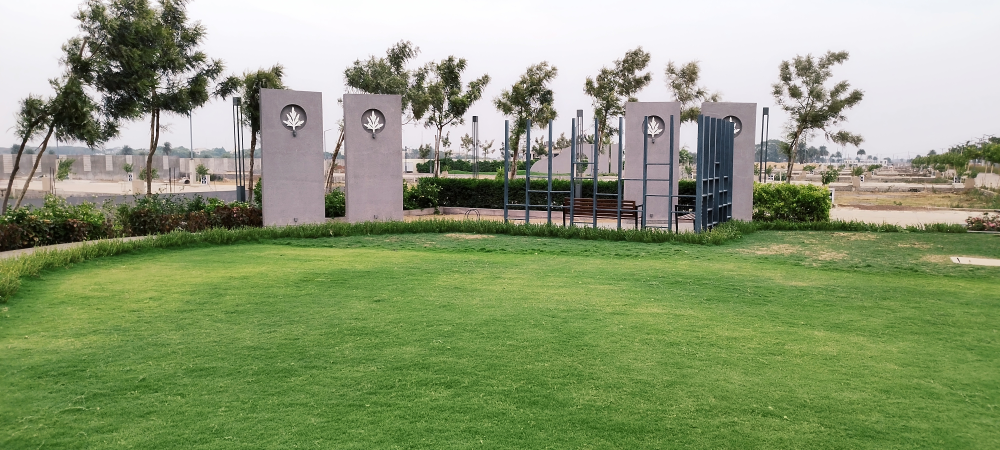
Investing in real estate can be a rewarding endeavor, but it requires careful planning and thorough research, especially in a growing city like Raipur. As the capital of Chhattisgarh, Raipur has become a hub of economic and infrastructural development, making it an attractive destination for real estate investors. However, before diving into the Raipur real estate market, it's essential to be well-prepared. Here are five crucial steps to consider before making your investment.
1. Understand the Market Dynamics
The first and foremost step in investing in real estate in Raipur is understanding the market dynamics. This includes gaining insights into property prices, demand trends, and the types of properties that are most sought after. Raipur's real estate market has been experiencing steady growth, particularly in residential properties, commercial spaces, and plots.
To get a good grasp of the market, start by researching current property prices in different areas of Raipur. Analyze whether these prices have been stable, rising, or fluctuating. Additionally, pay attention to the demand for specific types of properties. For instance, some areas might be more popular for residential apartments, while others might be hotspots for commercial developments.
Understanding the market dynamics also means keeping an eye on government policies and infrastructure projects. Raipur has seen significant infrastructural development, including the expansion of roads, the establishment of educational institutions, and the growth of IT and business hubs. These factors can influence property values and demand, making it crucial to stay informed.
2. Choose the Right Location
Location is perhaps the most critical factor when it comes to real estate investment. In Raipur, the location you choose can significantly impact the return on your investment. Some of the prime locations in Raipur include areas like Naya Raipur, Telibandha, VIP Road, and Shankar Nagar. These areas are known for their excellent connectivity, proximity to key amenities, and growing commercial presence.
When selecting a location, consider the following factors:
-
Proximity to Essential Services: Ensure that the property is close to schools, hospitals, shopping centers, and public transportation. This not only makes the property more attractive to potential buyers or tenants but also enhances your quality of life if you plan to live there.
-
Future Growth Prospects: Look for areas that are poised for future growth. Government infrastructure projects, new business developments, or planned metro lines can significantly increase property values over time.
-
Neighborhood Safety: Safety is a key consideration for any property buyer. Research crime rates in the area and consider visiting the neighborhood at different times of the day to get a sense of its safety.
Choosing the right location can make a substantial difference in the long-term value and rental income potential of your investment.
3. Assess Your Budget and Financing Options
Before you begin your property search, it's crucial to have a clear understanding of your budget and financing options. Real estate investment often requires a significant amount of capital, so it's important to plan your finances carefully.
Start by determining how much you can afford to invest without straining your finances. This includes considering any additional costs such as registration fees, stamp duty, legal fees, and maintenance costs. If you're planning to take out a loan, shop around for the best interest rates and terms. Many banks and financial institutions offer home loans with varying interest rates, tenure options, and eligibility criteria.
It's also a good idea to get pre-approved for a loan, as this can give you a clear picture of your borrowing capacity and make the property buying process smoother. Additionally, consider the potential for rental income, as this can help offset your monthly mortgage payments.
Remember that while it can be tempting to stretch your budget for a property you love, it's essential to stay within your financial limits to avoid future financial stress.
4. Conduct Thorough Due Diligence
Conducting thorough due diligence is a non-negotiable step in the real estate investment process. This involves verifying the legal aspects of the property, checking for any disputes, and ensuring that the property has clear titles.
Start by requesting the property’s legal documents, including the title deed, sale agreement, encumbrance certificate, and property tax receipts. It's advisable to have these documents reviewed by a qualified legal expert to ensure there are no hidden issues.
If you're buying a property in a newly developed area or from a developer, make sure to check the developer's reputation. Look into their past projects, delivery timelines, and customer reviews. This can give you an idea of the quality of construction and the likelihood of delays.
In addition to legal due diligence, physically inspect the property. This includes checking the quality of construction, the availability of water and electricity, and the overall condition of the building. If possible, talk to current residents or neighbors to get a sense of any ongoing issues or concerns.
Due diligence helps protect you from potential legal hassles and ensures that you're making a sound investment.
5. Consider Long-Term Prospects and Exit Strategy
Real estate is typically a long-term investment, so it's important to consider the long-term prospects of the property you're buying. Think about how the area is likely to develop in the coming years and whether the property will appreciate in value. This involves staying informed about future infrastructure projects, commercial developments, and changes in zoning laws that could affect property prices.
It's also important to have an exit strategy in place. Consider how easy it will be to sell the property in the future if needed. Properties in well-developed areas with good connectivity and amenities are generally easier to sell. Additionally, think about the rental potential of the property. Even if you don't plan to rent it out immediately, having the option to do so can provide a steady income stream and increase the property's appeal to future buyers.
Having a clear long-term plan and exit strategy can help you make more informed decisions and maximize the return on your investment.
Conclusion
Investing in real estate in Raipur offers great potential, but it requires careful planning and research. By understanding the market dynamics, choosing the right location, assessing your budget, conducting due diligence, and considering long-term prospects, you can make a smart and profitable investment. Whether you're a first-time buyer or an experienced investor, following these steps will help you navigate the Raipur real estate market with confidence and success.
Latest Posts
-
1
-
2
-
3
-
4
-
5








